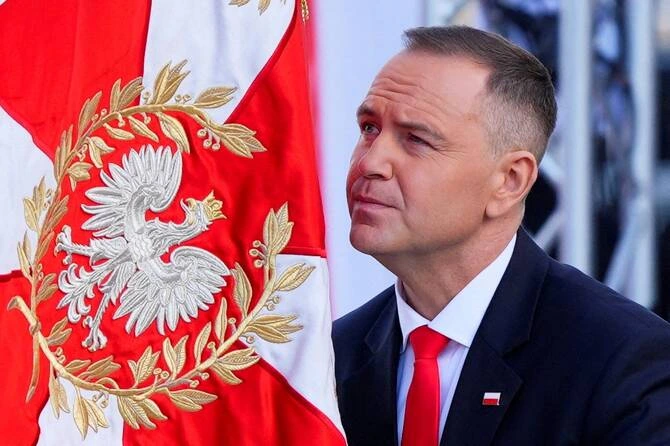Polish President Vetoes
In a move signaling a potential major shift in policy, Poland’s newly inaugurated President Karol Nawrocki vetoed a bill on Monday that would have prolonged direct cash benefits for Ukrainian refugees, arguing the legislation requires a significant rework.
The decision creates immediate uncertainty for hundreds of thousands of Ukrainians in Poland, as the current system of support payments is now set to expire in September without a replacement law in place.
President Nawrocki, who took office earlier this month, justified his veto by reiterating his firm stance that state benefits should be focused on those who contribute to the Polish economy.
READ MORE: EU Gives Ukraine €9bn From Frozen Russian Assets
“We remain open to providing assistance to Ukrainian citizens – that hasn’t changed. But after three and a half years, our law should be amended,” Nawrocki said in an official statement. The president’s office indicated that any new legislation must tie financial aid to employment, ensuring support is directed primarily at Ukrainians who work in Poland.
The vetoed bill had passed through Poland’s parliament and was awaiting the president’s signature to become law. Its rejection forces lawmakers back to the drawing board to draft a new proposal that aligns with the president’s vision, all against a tight September deadline.
Poland has been one of the primary destinations for millions of Ukrainians fleeing the war with Russia, earning widespread praise for its initial welcome. However, as the conflict drags on, public discourse in Poland has increasingly focused on the long-term economic and social costs of hosting a large refugee population.
President Nawrocki’s decision reflects this evolving sentiment. By championing a work-based requirement, he aims to address concerns from some citizens about the strain on public services while simultaneously encouraging greater integration of Ukrainians into the Polish labor market.
The move has been met with mixed reactions. Supporters argue it promotes self-reliance and ensures the sustainability of support, while critics worry it will leave vulnerable refugees, including the elderly, children, and caregivers, without a crucial safety net.
All eyes are now on the Polish parliament to see how quickly it can respond with new legislation that satisfies the president’s demands before the current benefits expire.









